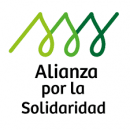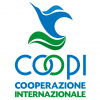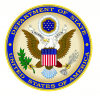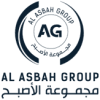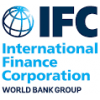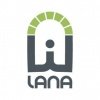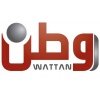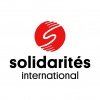Alianza Por La Solidaridad Anual Audit 2023 Equel Rooting pr...
Alianza por la Solidaridad (Alianza) is a Spanish NGO existing since more than 30 years and present in the Middle East since 1993. From 2009 till now it has developed a process of sectorial and geographical targeting for its interventions, which has meant the prioritization of women’s rights and gender equality. Alianza in the Middle East works within three main lines of action:
Prevention and response for Gender Based Violence, individual and community approach.
Women´s economic empowerment.
Women´s participation and active citizenship.
Alianza maintains stable local partners with whom it works in a sustained manner and deepening not the relations and regular contacts through the office in the field, but a fluid communication and analysis of the changes caused by the protracted conflict-related crisis and humanitarian situation in Palestine. Engaging men is a key piece to achieve meaningful results in gender equality, therefore, since 2017, there is a progressive work on implementing a new masculinities approach with community members and with CBOs, partners and other key actors. Alianza cooperates closely with its partners and support their work in a manner that represent Alianza and the partners values. Alianza has extensive experience and expertise on women´s rights and there is a high degree of knowledge about the environment and the unique relation with the population, civil society organizations, other humanitarian actors and local public entities.
Alianza por la Solidaridad is member of Action Aid since June 2018. Both entities share the idea that when people become aware that their future is in their hands and organize to challenge power structures and contribute to improving and changing institutions, changes can succeed. These changes should take place on a global scale in order to generate maximum impact, and they should be rooted in the political values of solidarity and internationalism. In addition, for Action Aid and Alianza, social justice, gender equality and climate justice are achieved through individual and collective actions that actively change inequitable and unjust power relationships, either hidden, visible, or invisible, from the home to local, national, and international spaces. The empowerment of people that live in poverty and marginalization, and of women and youth is a crucial part of creating these changes. Collective efforts and fights are stronger when they are bound together through solidarity, campaigns and common causes between communities, organizations, social movements and other allies to influence local and global institutions and public policies.
Our Commitment to Safeguarding
Alianza is committed to preventing any type of unwanted behavior at work including sexual harassment, exploitation and abuse, lack of integrity and financial misconduct. We are also committed to preventing and responding to any form of sexual harassment, exploitation and child abuse and abuse of adults at-risk, whether carried out by staff/representatives or resulting from our work. Alianza expects all staff and volunteers to share this commitment through our code of conduct. We place a high priority on ensuring that only those who share and demonstrate our values are recruited to work for us.
Alianza is planning to engage the services of an audit firm for the purpose of auditing the program "Equal rooting".
Equal Rooting is a three year project with a total amount of 29,400,000 SEK, funded by The Swedish International Development Cooperation Agency - SIDA. The project is implemented by 5 different partners: PICTI, WATAC, CFTA, PFPPA Alianza Palestine and Spain. Alianza Palestine is leading this project. The project started on Jan 2022 and will end Dec 2024.
Please note that SIDA reserves the right to approve the Cooperation Partner's selection of the auditor. and may require that the auditor shall be replaced if SIDA finds that the auditor has not performed satisfactorily or if there is any doubt to the auditor's independence or professional standards.
The financial report of the program '·Equal rooting" shall be carried out in accordance with the Cooperation partner 's accounting records and SIDA' s requirements as per the below TOR.
Annex D
Sida’s Standard Terms of Reference for Annual Audit of Project/Programme Support including ISRS 4400 (Revised)
Introduction
The Alianza por la Solidaridad, hereafter referred to as the “Cooperation partner” wishes to engage the services of an audit firm for the purpose of auditing the program “Equal rooting”, as stipulated in the agreement between the Cooperation partner and Sida. The audit shall be carried out in accordance with international audit standards (ISA) issued by IAASB[1]. In addition, an assignment according to International Standards on Related Services (ISRS) 4400 (Revised) shall be carried out. The audit and the additional assignment shall be carried out by an external, independent and qualified auditor.
Objectives and scope of the audit
The objective is to audit the financial report for the period 2023-01-01 to 2023-12-31 as submitted to Sida and to express an audit opinion according to ISA, applying ISA 800/ISA 805, on whether the financial report of the program “Equal rooting” is in accordance with the Cooperation partner´s accounting records and Sida’s requirements for financial reporting as stipulated in the agreement including appendices between Sida and Cooperation partner (Agreement).
Additional assignment; according to agreed upon procedures ISRS 4400 (Revised), review the following areas in accordance with the Terms of Reference below
Mandatory procedures that must be included:
Observe whether the financial report is structured in a way that allows for direct comparison with the latest approved budget[2].
Observe and inspect whether the financial report provides information regarding:
Financial outcome per budget line (both incomes and costs) for the reporting period and columns for cumulative information regarding earlier periods under current agreement.
When applicable, compare if the opening fund balance[3] for the reporting period matches with what was stated as closing fund balance in the previous reporting period.
A disclosure of exchange gains/losses. Inquire and confirm whether the disclosure includes the entire chain of currency exchange from Sida’s disbursement to the handling of the project/programme within the organisation in local currency/ies, if applicable.
Explanatory notes (such as, for instance, accounting principles applied for the financial report).
Amount of funds that has been forwarded to implementing partners, when applicable.
a) Inquire and inspect with what frequency salary costs during the reporting period are debited to the project/programme.
Choose a sample of three individuals for three different months and:
Inquire and inspect whether there are supporting documentation[4] for debited salary costs.
Inquire and inspect whether actual time worked is documented and verified by a manager. Inquire and inspect within which frequency reconciliations between debited time and actual worked time is performed.
Inspect whether the Cooperation partner comply with applicable tax legislation with regard to personal income taxes (PAYE)[5] and social security fees.
Review and confirm that the Cooperation partner screens IP’s and/or suppliers to ensure that such parties are not subject to the European Union’s financial sanctions list of persons, groups and organisations (EU Sanctions list).
Enquire whether there has been any reported findings from the screening process and if so, report on such findings.
a) Inspect and confirm that the unspent fund balance (according to the financial report) at the end of the financial year is in line with information provided in the accounting system and/or bank account.
b) Applicable the final year: Inspect and confirm the unspent fund balance (including exchange gains) in the financial report and confirm the amount that shall be repaid to Sida.
Inquire and inspect whether the Cooperation partner has adhered to the procurement guidelines referred to in the Grant agreement (Article 12), by selecting a minimum of three procurements of goods and/or services.
Inquire and inspect if the agreed indirect/overhead costs are based on a cost recovery model. Obtain information on debited overhead costs within the project and confirm whether the costs are in line with the Cooperation partner´s routines for allocating overhead costs to different projects.
Follow up of funds that are channelled to implementing partners
Mandatory assignments that must be included if the Cooperation partner forward funds to implementing partners (IP’s):
Choose a sample of a minimum of 50 % of the total of disbursed funds as well as 50 % of the number of IP’s or a maximum of 10 IP’s.
Inspect and confirm whether the Cooperation partner has signed agreements with the selected IP’s.
Inspect and confirm whether the Cooperation partner, in all agreements entered with IP’s, included the requirement to carry out annual audits. The requirement shall specify that these audits shall be carried out with application of ISA (reporting according to ISA 800/805) and a separate assignment according to ISRS 4400 (Revised) should be included for project/programme support. If agreements regarding core support are entered into with IP’s, the audit shall be conducted in accordance with ISA 700 or National standards on auditing.
Inquire and inspect whether the Cooperation partner has received financial reports and auditor reports from all IP’s included in the selected sample:
Inquire and inspect whether the Cooperation partner has verified if reports from IP’s are in line with the requirements in the Agreement.
Inquire and inspect whether the Cooperation partner has documented its assessment of the submitted financial reports and reporting from auditors including management responses and action plans from selected IP’s.
Inquire and inspect whether the Cooperation partner has documented its follow-up actions based on the information provided in the financial reports and the reporting from the auditor of the selected IP’s.
Inquire and inspect whether the Cooperation partner has reported substantial observations[6] from selected IP’s audit reports in its communication with Sida. List observations[7] from IP’s audit reports which have been part of this sample.
III. The reporting
The reporting shall be signed by the responsible auditor (not just the audit firm[8]) and shall include the title of the responsible auditor.
Reporting from the ISA assignment
The reporting from the auditor shall include an independent auditor’s report in accordance with the format in standard ISA 800/805 and the auditor’s opinion shall be clearly stated. The financial report that has been the subject of the audit shall be attached to the audit report.
The reporting shall also include a Management letter that discloses all audit findings, as well as weaknesses identified during the audit process. The auditor shall make recommendations to address the identified findings and weaknesses. The recommendations shall be presented in priority order and with a risk classification.
Measures taken by the Cooperation partner to address weaknesses identified in previous audits shall also be presented in the Management Letter. If the previous audit did not have any findings or weaknesses to be followed-up on, a clarification of this must be disclosed in the audit reporting.
If the auditor assesses that no findings or weaknesses have been identified during the audit that would result in a Management Letter, an explanation of this assessment must be disclosed in the audit reporting.
Reporting from the ISRS 4400 (Revised) assignment
The additional assignment according to agreed upon procedures ISRS 4400 (Revised) under section II, shall be reported separately in an “Agreed-upon procedures report”.
Performed procedures should be described and the findings should be reported in accordance with the requirements in the International Standard on Related Services 4400 (Revised).
When applicable, the sample size shall be stated in the report.
Please take into consideration the following;
- - The audit cost (Financial offer) should be submitted in Shekels including VAT.
- - Easy access to Jerusalem is preferable
- - The audit will be for year 2 of the project implementation 1.1.2023-31.12.2023.
- - The final audit report must be submitted no later than the 20th of July 2024.
- - All technical and financial offers must be submitted by June 2, 2024, to the following email address: [email protected] , [email protected]
[1] The International Auditing and Assurance Standards Board (IAASB)
Template case no: 23/000790 Department: VERKSTOD/JUR Other:
Version no: 1.3 Date: 20230428 Other:
[2] The budget is attached to the agreement with Sida as an annex and any updates should be supported by a written approval by Sida.
[3] I.e. funds remaining from disbursements made during previous reporting period/s
[4] Debited salary costs should be verified by supporting documentation such as employment contracts.
[5] Pay As You Earn
[6] Deemed substantial by the Cooperation partner.
[7] Observations included in Management Letters and if applicable, qualified audit reports.




